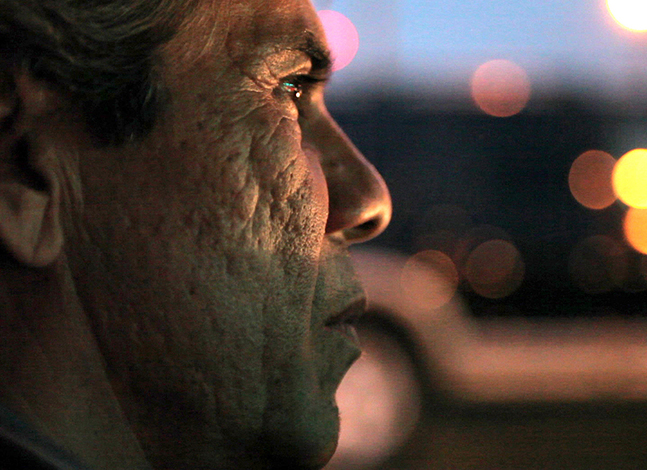
From Bernardo Ruiz' Reportero. Photo: Bernardo Ruiz/Quiet Pictures
"Let them kill us all, if that is the death sentence for reporting this hell," veteran reporter Javier Valdez Cárdenas tweeted on March 25, in response to the murder of a fellow journalist in Mexico. "No to silence." Less than two months later, Valdez was pulled out of his car and shot more than ten times in broad daylight. Valdez, who was recognized for his courage by the Committee to Protect Journalists (CPJ) with an International Press Freedom Award in 2011, became the sixth journalist to be killed in Mexico this year. Soon after, a seventh journalist was murdered.
In the last five years, the situation for journalists in Mexico has become increasingly dire, with many in Mexico calling it a full-blown crisis of freedom of expression. CPJ estimates that 25 journalists have been killed since President Enrique Peña Nieto took office in December 2012. Among those journalists who have not been executed, many face threats and intimidation - and a number have sought asylum in the US, as chronicled in Everardo Gonzalez's documentary El Paso (2016).
In my own 2012 documentary, Reportero, I focused on veteran Mexicali reporter Sergio Haro, who endured threats for reporting on the death of a fellow journalist, and the threats against his colleagues at the embattled Tijuana newsweekly, Semanario Zeta. In the closing minute of the film, Haro intones, "It's easier to look the other way and not cover this issue. But in the end you would become another accomplice. For the rest of my life, I only want to be a reporter. That's always been clear to me. From the day I started, until my last day."
Haro died of a heart attack on May 30 at his home in Mexicali. He believed that the purpose of journalism was to expose "all that is rotten" and to humanize the most vulnerable of his region, avoiding the easy sensationalism that comes with covering the narco. He was also a dogged defender of his profession, and a supporter of his colleagues who have paid a heavy price for their reporting. It is his colleagues, including fellow journalist and chronicler of the narco, Diego Osorno, who are now organizing to stem the tide of violence against those in their profession.
"We have to do something as a collective amid this growing situation," Osorno told the international press recently. He and other prominent journalists, including Lydia Cacho, have convened more than 60 organizations, including Article 19, the Knight Center for Journalism in the Americas and The New York Times en Español to rally support for their colleagues. Meeting this week in Mexico City (June 14, 15 and 16) the group seeks to concretely define what can be done to protect journalists. As Osorno puts it, the goal is "to build a plan of action, a roadmap for confronting this spiral of violence."
Bernardo Ruiz is a documentary director and producer. Reportero was nominated for a 2014 News and Documentary Emmy award. His second film, Kingdom of Shadows, aired on POV in 2016. He was a filmmaker-in-residence at U.C. Berkeley Graduate School of Journalism in fall 2015, and he serves on the Advisory Committee on the IDA Enterprise Documentary Fund.
For an article on Reportero, from the Winter 2013 issue of Documentary magazine, click here.
